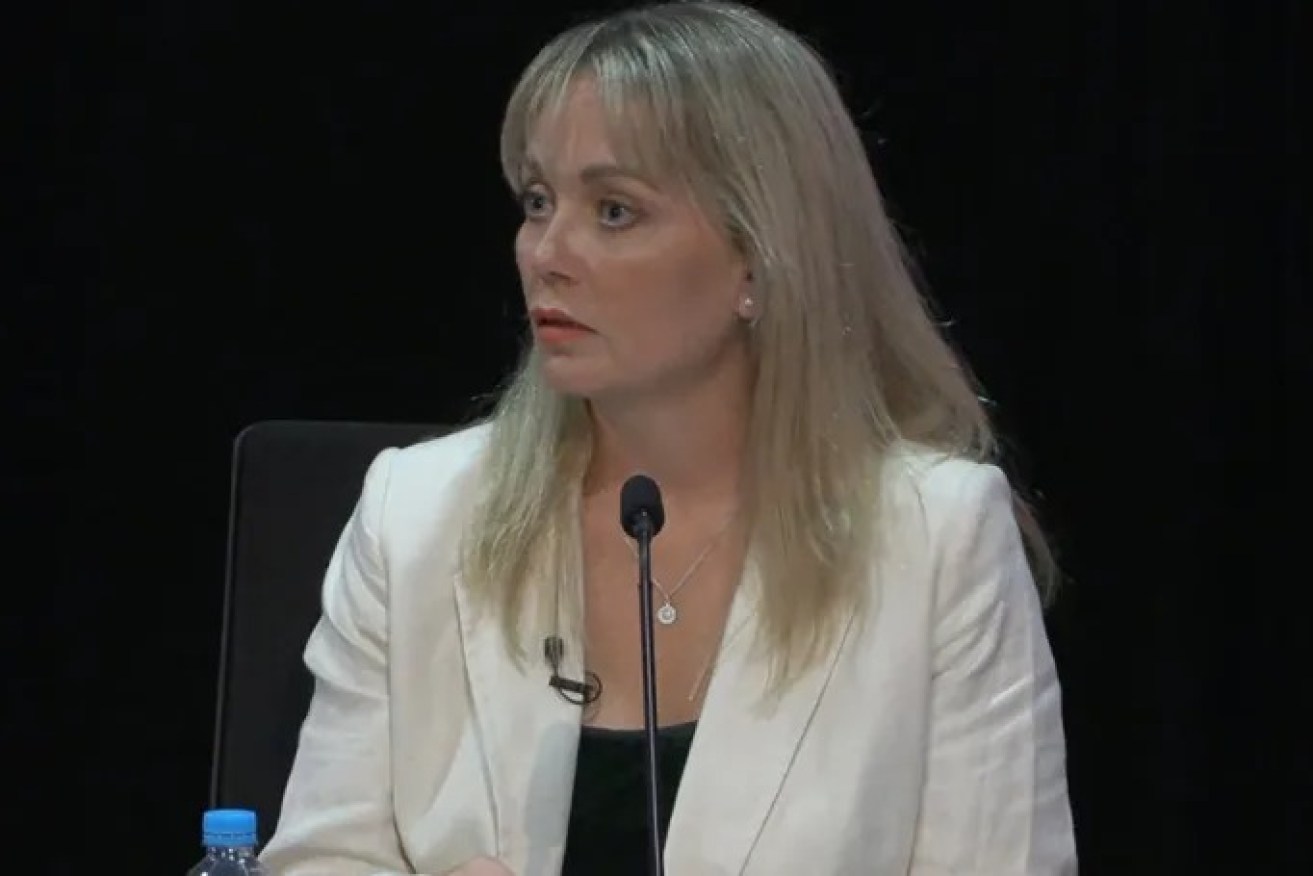Robodebt inquiry is laying bare the horrific human cost of cheap and heartless politics


Rachelle Miller, former senior adviser to Alan Tudge, gave stunning evidence on Tuesday. Photo: AAP
Playing politics with people’s lives – literally – should sicken us all.
I have spent too many mornings to count waking up to hostile media stories about “dole bludgers” or “welfare cheats”.
Every time my heart would sink, knowing that hundreds of thousands of people were also waking up to these stories purporting to be about them, accusing them of being lazy and at worst of being criminals.
We have repeatedly warned the political culprits driving these stories to stop, and to understand the human impact.
At the RoboDebt royal commission this week, this cruel and nasty political strategy was laid out in all its ugly truth – a media strategy employed by a federal government which would distract from the aggressive abuse of government power that they were committing against hundreds of thousands of people.
We heard how the Federal Government tried to “shut down” reports raising the alarm over the unethical Robodebt scheme and instead run a “counter-narrative” in conservative media to win over “swing voters” and rally the Coalition base.
As it devoted time and resources to relentlessly pursuing this argument in our newspapers and on our TVs and radios, the government made no mention of the fact that a minuscule 0.1 per cent of people with an overpayment had actually committed fraud.
The reality was that in most cases people were dealing with debts they didn’t understand or owe. Hundreds of thousands of people were plunged into a state of crisis after receiving a notice claiming they owed the government money from years ago, often in the tens of thousands of dollars. They were told to prove their innocence or pay up.
But the former Federal Government pushed on, targeting and humiliating people struggling to make ends meet who raised concerns publicly about RoboDebt, to hoodwink voters and shamelessly boost their popularity.
Political canon fodder
People on income support were not seen as humans but political cannon fodder. As we had suspected, this week we heard evidence that the Prime Minister’s office approved of the media strategy because it was playing well in marginal seats in areas such as Western Sydney.
There was a complete lack of empathy, which was evidenced by the appalling decision to publish personal details of victims who went public with their disturbing stories.
At the time, many were rightly horrified that any government would do this. The power imbalance was clear – we had the might of the government using the media as a vehicle to pursue people who received income support.
It was traumatic to both the individual and to other silent victims who were left petrified.
Those advocating against Robodebt suspected the aim of releasing people’s details was to intimidate and shut down dissent.
So hearing this in evidence at the Royal Commission came as no surprise – but the evidence should sicken us all.
Sadly, we know the tactic worked with people silenced because they were terrified of their own government. Many would go on to pay debts they did not owe, too scared not to do so.
At the same time the Federal Government was publicly shaming innocent people, it was ignoring warnings from ACOSS, National Council of Single Mothers and their Children, community legal centres and grassroots organisations like NotMyDebt that RoboDebt was horribly wrong.
We first learned of the illegal scheme after it was scaled up nationally in late 2016, issuing up to 20,000 debt notices a week, causing widespread horror.
We warned the Minister responsible that there were serious flaws with the scheme and it was causing grave distress.
We wrote repeatedly to his office and met with him but our calls to stop the programme were ignored. Our direct approach to then Prime Minister Malcolm Turnbull calling on him to shut the program down because of the harm it was causing was rejected.
The warning lights were flashing and the alarm bells were ringing but the government pressed on.
Expendable Australians
This Royal Commission shines a searing light on the shameful state of our political culture.
The Commission is uncovering a story about power, who had it, and how it was used to relentlessly abuse people perceived to be expendable.
Extraordinarily brave, truthful, and decent people who have relied on income support during tough times have given evidence of how Robodebt nearly led them to take their lives, and as we heard some did.
Listen to them. There is more to politics than winning elections. Securing power at the highest levels of politics should bring the highest standards of responsibility.
I hope all involved in politics are watching this Royal Commission: politicians, advisers, bureaucrats and the media machine that drives them.
The demonisation and abuse of people on low incomes for political ends and headlines must stop once and for all.
Using the experience of people on low incomes for cheap politics carries a devastatingly heavy price.
Cassandra Goldie is CEO of the Australian Council of Social Security. Prior to joining ACOSS, Ms Goldie held senior roles in both the not-for-profit and public sectors, including with the Australian Human Rights Commission








